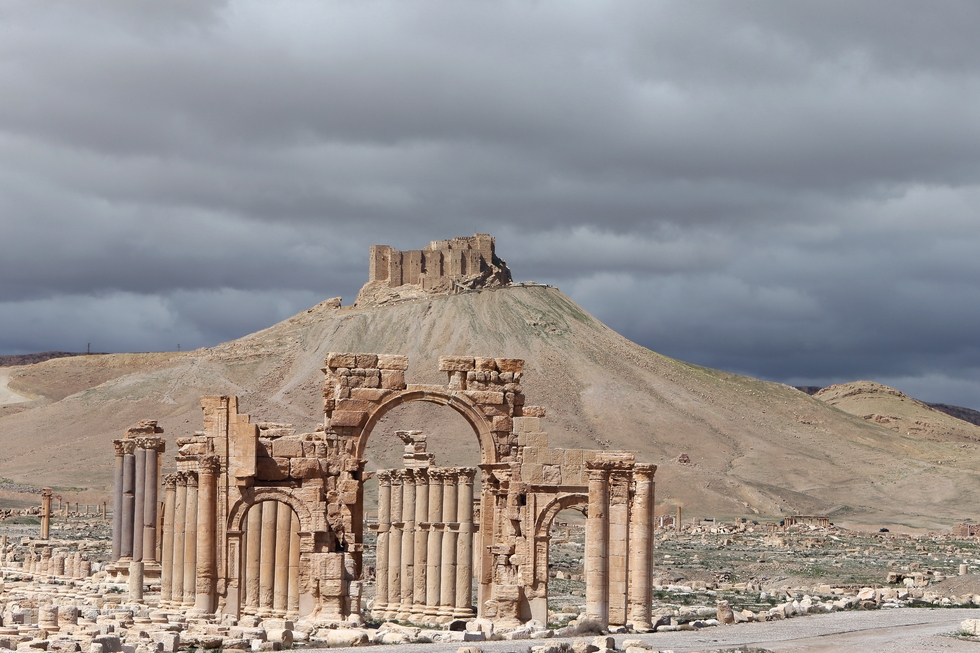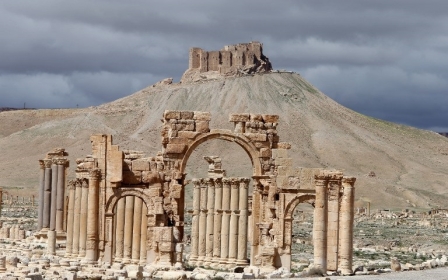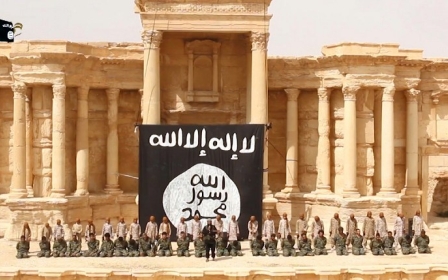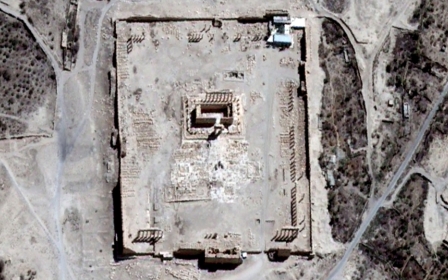Syrian government forces at the gates of historic city of Palmyra

The Syrian Arab Army and the allied National Defence Forces clashed with Islamic State (IS) forces on Wednesday after taking control of a strategic hill overlooking the city.
According to the IS-linked Amaq agency, the militant group carried out a suicide attack on a large number of Syrian army forces on Monday, just outside Palmyra.
“Today a martyrdom bomber attacked a gathering of 70 fighters belonging to the Alawite Maghawir al-Bahr unit, which is part of the Syrian regime troops in the Dawwah area, west of Palmyra city,” the website said.
“The martyrdom bomber was able to detonate his truck bomb in their midst, killing at least 30, among them the unit’s commander, Ali Rahmun Askar, and wounding the rest.”
IS has held Palmyra since May, when it seized it from Syrian government control.
Since then, the city has garnered global attention due to IS's demolition of ancient pre-Islamic structures in the UNESCO World Heritage site.
Though most of the residents of civilian areas of Palmyra have fled the city, the 6,000 or so who remain fear reprisals from the pro-Assad forces should they retake it from IS.
The city, also called Tadmor, has been hit by air strikes from both the Syrian and Russian airforces.
“The regime will take revenge on the city - they are afraid of that,” said Mohamed Alkhateb, a spokesperson for the opposition group Palmyra Coordination.
He told Middle East Eye that the people of Palmyra were confronted with “daily bombing, killing, rocket bombardment”.
“Both the regime and IS are criminals - the regime kill more innocent people than IS,” he added.
A local coordination committee spokesperson said that the city's infrastructure and 50 percent of its neighbourhoods had been destroyed by air strikes.
Thomas Pierret, a Syrian expert at the University of Edinburgh, said earlier this week that even if the army can take Palmyra, he doubted that it would be able to advance much further beyond the area.
"Let's not forget that whatever its advances in Palmyra, the regime is still fighting very difficult battles against IS in the desert west of Palmyra, in the eastern parts of the provinces of Homs and Hama," he told AFP.
But recapturing Palmyra would still be an important victory for the Assad government, currently in Geneva for talks with Syrian opposition groups, but still allowed to battle IS and al-Qaeda affiliate the Nusra Front under the ceasefire terms that preceded the talks.
"Symbolically it would be huge, since it would enable the regime to portray itself as the protector of Palmyra's antique ruins, even if this comes at the price of turning the modern, inhabited part of the city into rubble," Pierret said.
The recapture of Palmyra by forces loyal to Bashar al-Assad would be a major symbolic and strategic victory.
Control of the oasis city would enable control of the surrounding desert, an area of around 30,000 square kilometres reaching to the Iraqi border.
The move would cut the IS area of control by about 10 percent, leaving them with about 30 percent of territory in Syria, according to the SOHR.
It would also leave the road open to IS-controlled Deir ez-Zor.
Kerry in Moscow
Despite Assad's apparent advances, the US has continued to push with Russia for Assad's departure, seeing it as crucial to the restabilisation of Syria.
US Secretary of State John Kerry was in Moscow on Wednesday to discuss the issue with his counterparts.
"What we're looking for, and what we’ve been looking for for a long time is how are we going to transition away from Assad's leadership," a senior US official told reporters.
Kerry is in regular contact with his Russian counterpart Sergei Lavrov, but the top US diplomat knows any change in the Kremlin's posture will only come from Putin himself.
"On the Russian side, there's only one decision maker and you need to be in the room with him to evaluate what's possible," the State Department official said.
New MEE newsletter: Jerusalem Dispatch
Sign up to get the latest insights and analysis on Israel-Palestine, alongside Turkey Unpacked and other MEE newsletters
Middle East Eye delivers independent and unrivalled coverage and analysis of the Middle East, North Africa and beyond. To learn more about republishing this content and the associated fees, please fill out this form. More about MEE can be found here.




